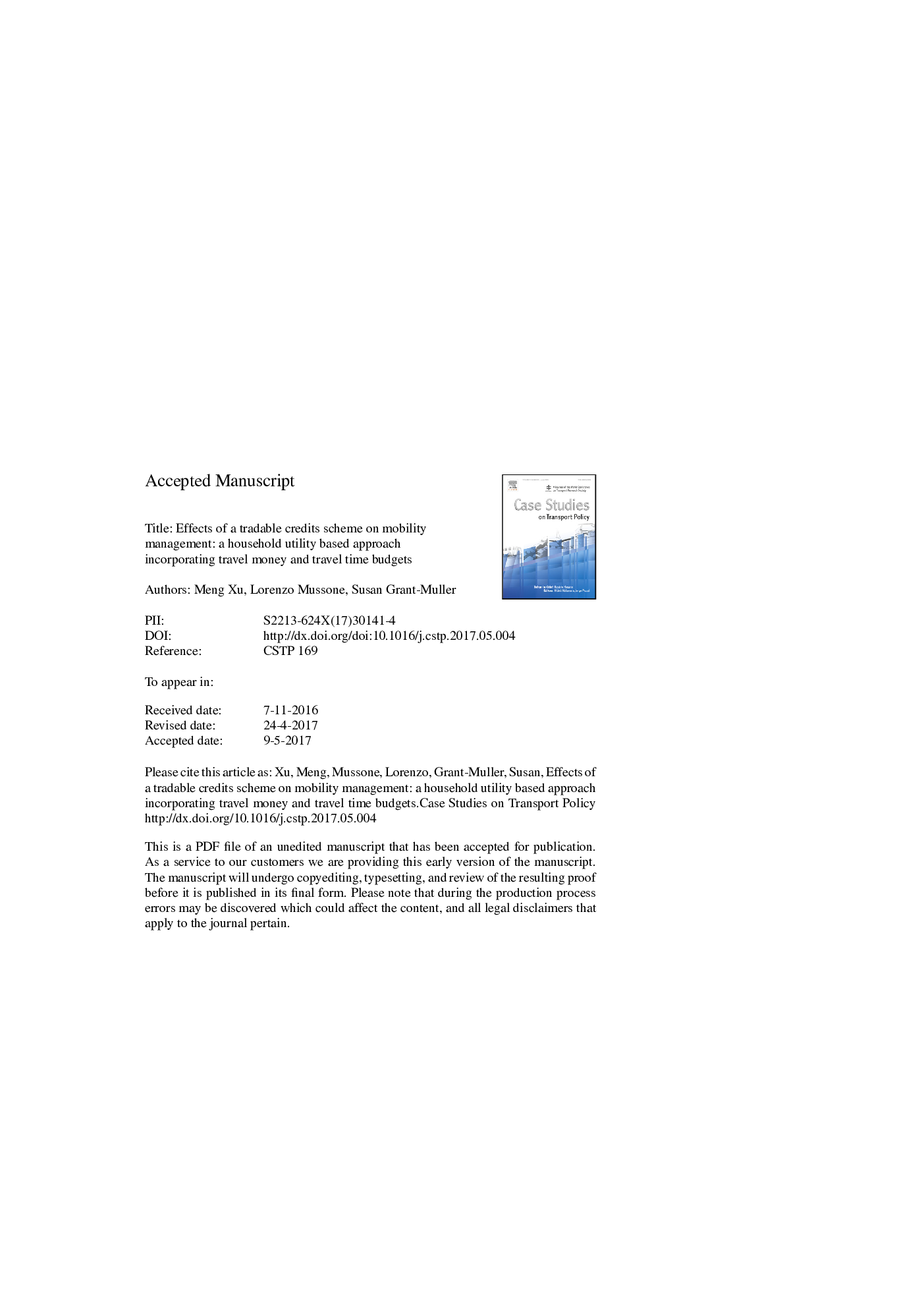| Article ID | Journal | Published Year | Pages | File Type |
|---|---|---|---|---|
| 8941511 | Case Studies on Transport Policy | 2018 | 16 Pages |
Abstract
We investigate the influence of a new mobility management measure, the tradable credits scheme (TCS), on the daily travel mode choices of individuals. Generally, we assume the individuals' travel consists of different modes, e.g. private car mode and mass transit mode. In order to control the rapid increase in use of the private car mode in an area, policy makers may wish to implement a TCS basing on the vehicle kilometre travelled (VKT). The effects of the TCS are investigated in this paper based on a utility-theory travel demand model proposed by Golob et al. (1981), a household utility based model incorporating proposed travel money and travel time budgets. The empirical investigation is based on comparison studies of the short-term response and long-term effects with and without TCS. It finds that the implementation of TCS has not a clear impact to the value of time of household in the short-term, and the presence of TCS does not affect the linear relationship between travel time budget and travel money budget over long term. Numerical results demonstrate that the TCS will affect the travel distance of the available transport modes differentially, according to different levels of annual household income.
Related Topics
Physical Sciences and Engineering
Engineering
Civil and Structural Engineering
Authors
Meng Xu, Lorenzo Mussone, Susan Grant-Muller,
